- connecting our global alumni network
28 February 2022
Sky Isn’t the Limit for Venture Catalyst Space Program Graduates
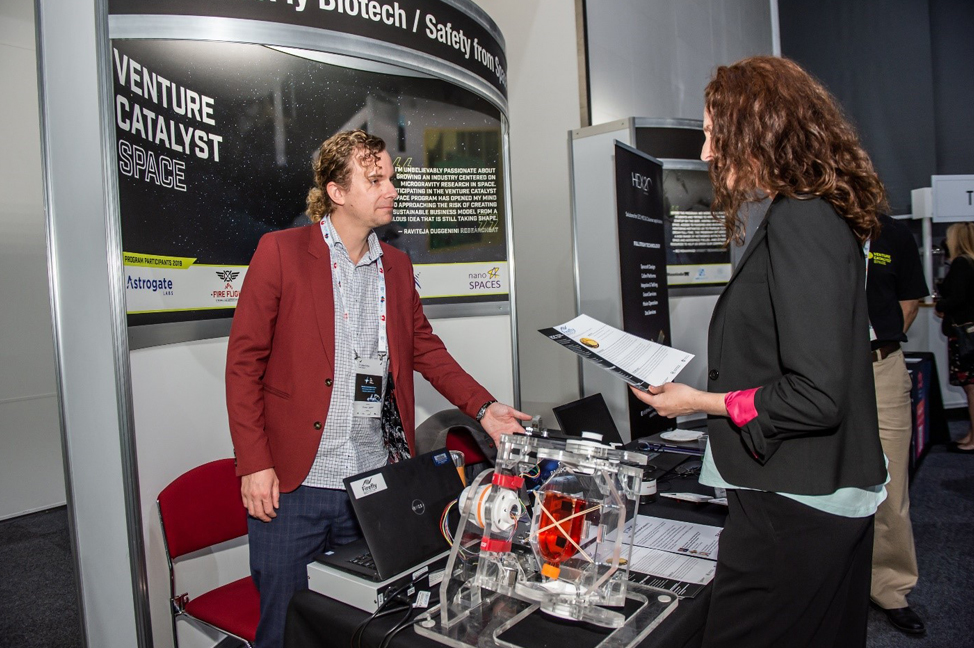
Dr Giles Kirby
Director of Firefly Biotech
UniSA Research Fellow
Translational scientist and UniSA Research Fellow, Dr Giles Kirby, has always been enthralled with science. So, after having an opportunity to really think about his career and next steps after six years at the University, Giles turned to what he was truly passionate about – medicine and space – and founded Firefly Biotech to develop and support off-world healthcare and medical research.
Founded in response to the insufficient availability of appropriate tools that allow research biologists access to space environments for their research, Firefly Biotech specialises in advanced technology development, supplying cutting edge approaches that underpin space medicine.
One particularly pertinent problem is the inability to properly simulate microgravity (the condition in which people or objects appear to be weightless) without spending inordinate amounts of money to research this in space.
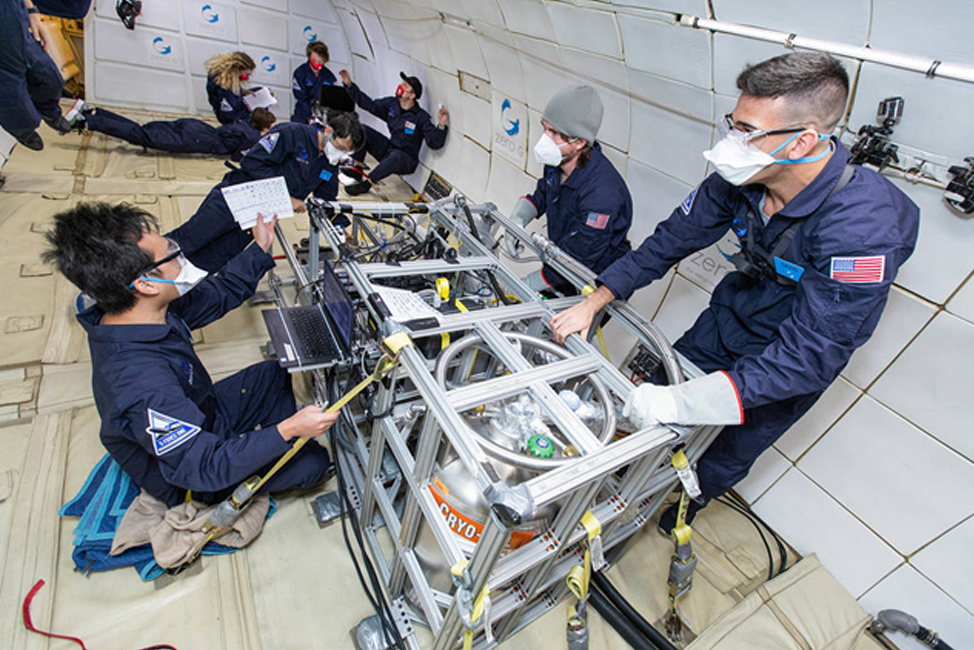
Biology that's evolved on earth has evolved under one g of earth gravity. Therefore, when you start taking things into space, they obviously experience microgravity and start behaving very differently.
“We've sent healthy astronauts into space and seen the effects of microgravity on healthy people,” says Giles. “But in 10 years everyday people like you and me are going to be living and working in space – we're going to go to space with pre-existing health conditions, and those conditions are going to behave a lot differently.”
“We need to understand how those conditions will progress and how to treat them in microgravity environments, and to do that we need fundamental knowledge that we don't currently have.”
“There's such a fundamental gap in the biology and we've got to begin solving this problem. This is why we're developing tools and approaches to simulate microgravity and be actually able to study this biology on the lab bench.”
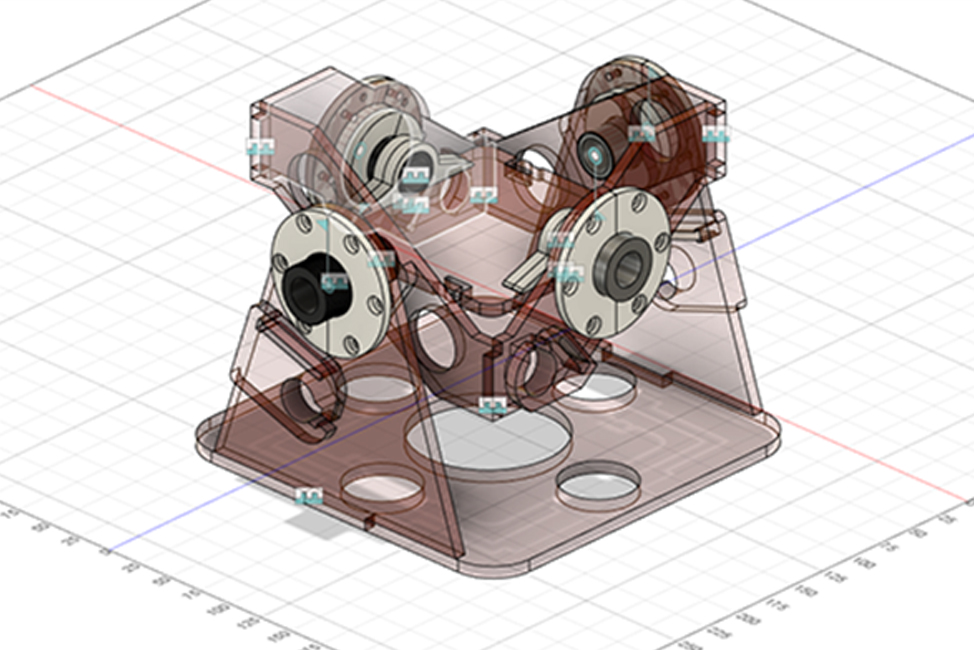
In response to this problem, Firefly Biotech has been able to ingeniously develop a physical random positioning machine or the Dual Axis Clinostat – a fluid-filled device that rotates slowly on two axes in random motions simulating microgravity.
Though investigating this microgravity science has always been a core component of Giles’ work, building the technology and distributing it within a company framework was a different story.
This is when he turned to UniSA’s Innovation and Collaboration Centre (ICC), which supports early-stage startups by providing workspace, mentoring and funding, to develop the business-side of the company.
After earning a coveted place in the ICC’s Venture Catalyst Space program – a one of a kind simultaneous incubator and accelerator – Giles and his team had access to Industry Experts from all around the globe to provide startup with advice, assistance and industry connections.
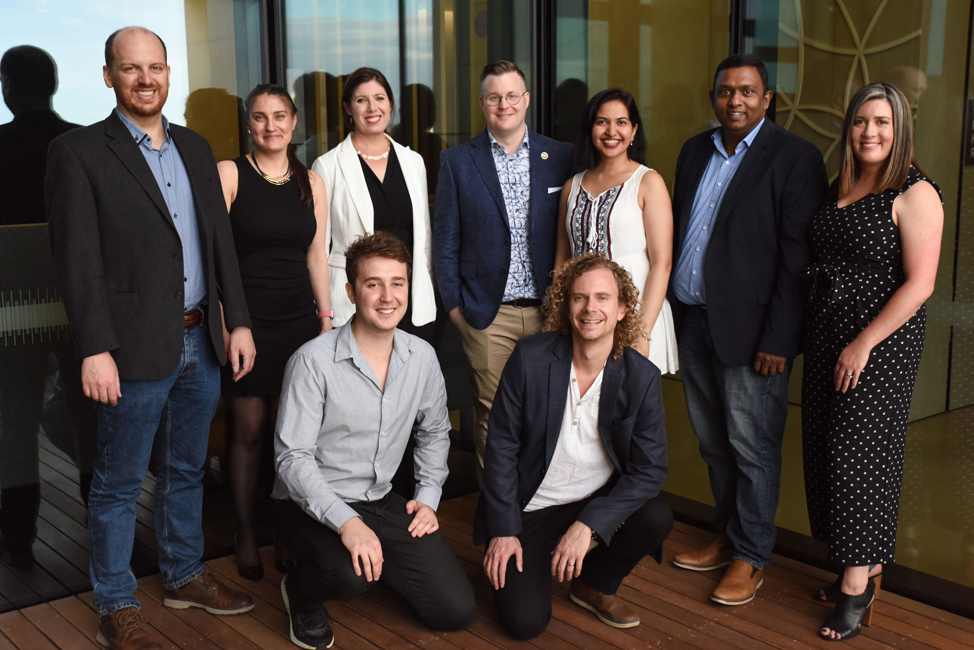
It also offered valuable support, networks and tools they needed to plan and successfully build a scalable and investment ready business. If it wasn't for these experiences through the Venture Catalyst Space, Firefly Biotech would not be the success it is now.
“The mentoring has been transformative for our company. It's helped us focus in on the things that we didn't necessarily know we had to focus on at the time, and it's helped us solve problems that we needed to solve at that moment,” Giles says.
“Identifying the target market and the consumer we thought we knew who we were selling units to have also been particularly valuable. We've actually seen that the market's a lot bigger than we thought it was, which is a key benefit, but it's something we needed to be aware of.”
“While I think these experiences have made us a bit uncomfortable, and forced me to really think about and accelerate development, we're in a very strong position that we wouldn't have otherwise been in.”
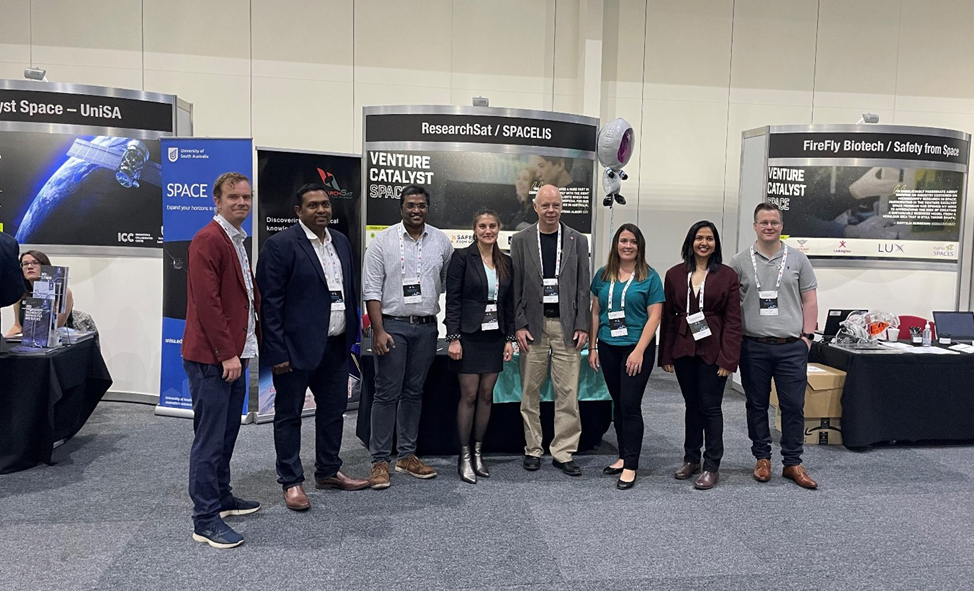
Through the Venture Catalyst Space and unparallel access to industry and research it granted, the team were also able to build a functional Dual Axis Clinostat prototype unit and quickly get it into the hands of aspiring space biologists at the university. Here they were able to test the product and work out how it performed with the biology.
Firefly Biotech were then able to make alterations and develop another five new machines in the building, eventually getting them into the hands of five new biologists and aspiring space scientists as well, building their name and business.
Having relocated to Adelaide from the UK with his wife seven years ago, Giles also knew Adelaide was the perfect spot to combine his medicine and space passions as South Australia has positioned itself as the go-to state for Space and Defence.
“We live here because we love the city, and we think the quality of life is fantastic. It's a great place to build a space company, work with like-minded companies, and actually seek funding to grow because it also happens to be the space capital of Australia,” he says.
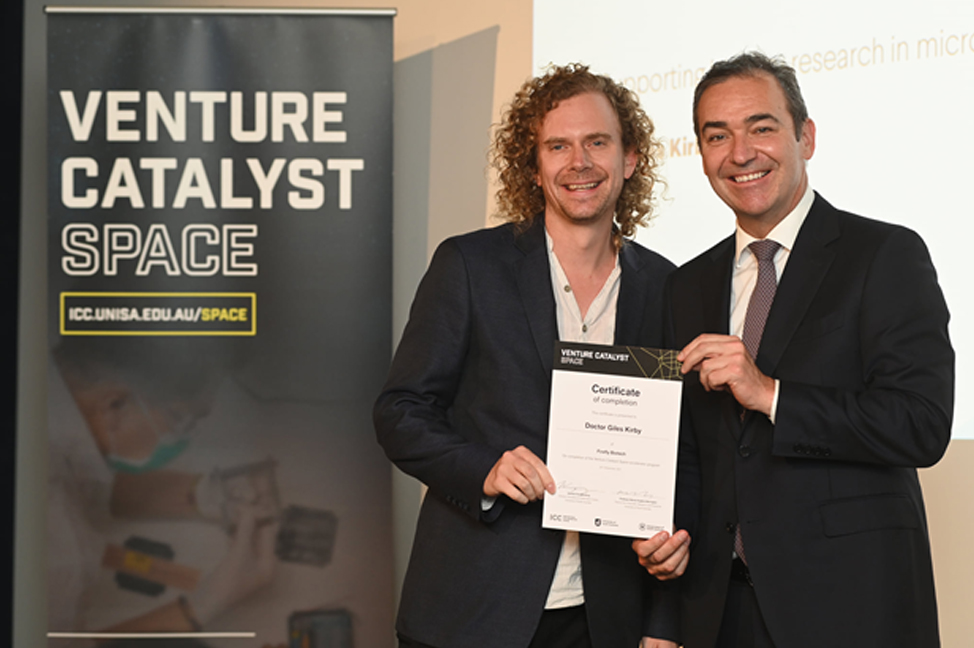
“It’s a fantastic place to start up a company like this because of incubators like the ICC’s Venture Catalyst Space and establishment of the Australian Space Agency, paired with the enormous growth of the industry here.”
Now calling South Australia home, the sky is certainly not the limit for Giles and the Firefly Biotech team as they have ambitious goals propelling them into the future. The ultimate goal isn’t just based on earth, it’s supplying medicine in space.
“Our dream is to develop off-world healthcare solutions to support medicine for all astronauts and people living and working in space.”
“It's an ambitious goal – so to get there we're doing what's actually achievable now – selling tools to biologists here on earth to develop the fundamental underlying biology. From there we can build the necessary approaches to actually create orbital systems to support remote off-world medicine.”
For more information about the ICC’s Venture Catalyst programs and Firefly Biotech visit their website here.


